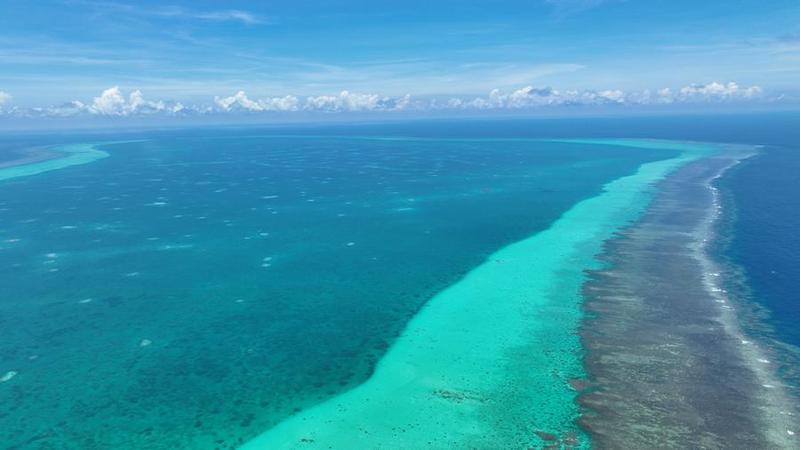Philippines says 220 Chinese vessels spotted at disputed reef
Manila expresses concern about overfishing, destruction of marine environment, and risks to safety of navigation.
The Philippines has expressed concern after spotting hundreds of Chinese military vessels at a reef claimed by both countries in the South China Sea, but did not immediately lodge a protest.
A government task force overseeing the disputed region said late on Saturday that about 220 vessels, believed to be crewed by Chinese maritime militia personnel, were seen moored at the Whitsun Reef on March 7.
The reef, which Manila calls Julian Felipe, is a boomerang-shaped and shallow coral region about 175 nautical miles (324 kilometers) west of Bataraza town in the western Philippine province of Palawan.
The National Task Force for the West Philippine Sea said the reef is well within Philippines’s exclusive economic zone and it “enjoys the exclusive right to exploit or conserve any resources” there.
Foreign Minister Teodoro Locsin asked whether he would file a diplomatic protest over the ships’ presence, told a journalist on Twitter: “Only if the generals tell me. In my watch foreign policy is the fist in the iron glove of the armed forces.”
China’s foreign ministry did not immediately respond to a request for comment on Sunday.
An international tribunal in 2016 invalidated China’s claim to 90 percent of the South China Sea, but Beijing does not recognise the ruling.
China in recent years has built islands in the disputed waters, putting airstrips on some of them.
Taiwan, Malaysia, Vietnam, the Philippines and Brunei all claim parts of the sea.
In January, the Philippines protested a new Chinese law allowing its coastguard to fire on foreign vessels, describing it as a “threat of war”.
The United States has repeatedly denounced what it called China’s attempts to bully neighbours with competing interests, while Beijing has criticised Washington for what it calls interference in its internal affairs.
The Philippine task force said the large numbers of Chinese boats spotted the Whitsun reef are “a concern due to the possible overfishing and destruction of the marine environment, as well as risks to safety of navigation”.
However, it added that the vessels were not fishing when sighted.
The body promised to monitor the situation and “to peacefully and proactively pursue its initiatives on environmental protection, food security and freedom of navigation” in the South China Sea.












